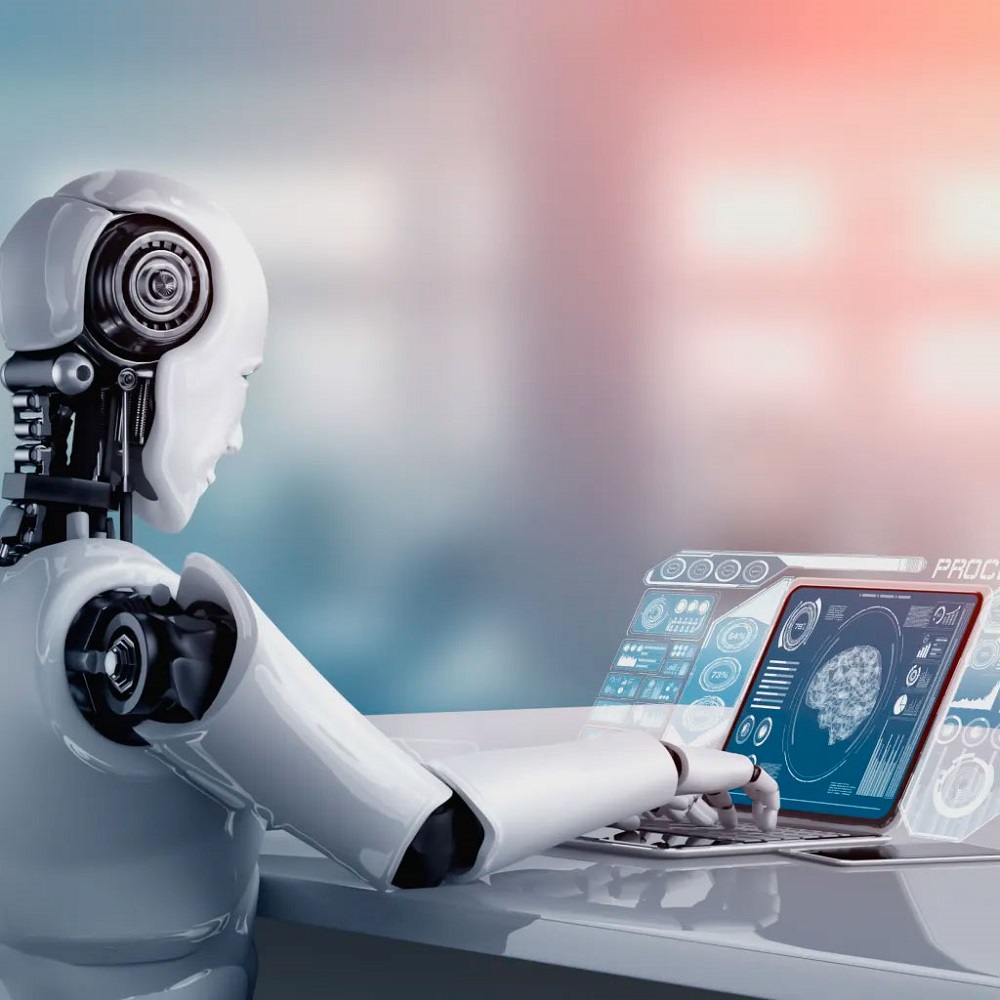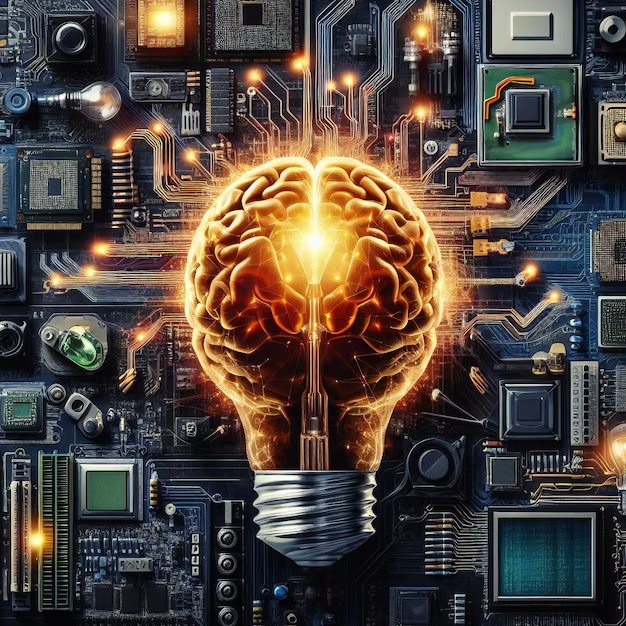The Role of MIT in Shaping AI and ML
Massachusetts Institute of Technology (MIT) is a frontrunner in developing artificial intelligence (AI) and machine learning (ML). MIT researchers and professors work at the forefront of AI innovation. The institution’s dedication to interdisciplinary education fuels the AI sector’s growth. MIT’s contributions to AI and ML are not merely academic. They reflect in multiple industries worldwide. The institute’s AI certificate program is a testament to their influence in the field.
MIT houses renowned research bodies such as the Computer Science and Artificial Intelligence Laboratory (CSAIL). It also includes the Institute for Data, Systems, and Society (IDSS) and the Laboratory for Information and Decision Systems (LIDS). These entities are pillars of AI and ML research and education.
Program participants enjoy learning from influential MIT faculty. Students receive guidance through the latest developments in AI and ML. These include predictive analytics, deep learning, and algorithmic methods. The curriculum is rich with real-world applications, ensuring that knowledge gained is applicable and relevant.
By fostering a research-based approach, MIT advances the understanding and use of AI. The focus on practical problem-solving prepares students for challenges in the AI landscape. Alumni from MIT are known to lead transformations in tech-centric roles globally.
The MIT Artificial Intelligence certificate program stands out for its comprehensive content. It offers a blend of theoretical and practical learning. Students delve into natural language processing, AI system architecture, and more. This education shapes a new generation of leaders in the AI revolution.

Core Components of MIT’s AI Certificate
MIT’s AI certificate program is a deep dive into the world of artificial intelligence. This program covers 16 or more days of intensive courses. The participants develop a robust understanding of AI and machine learning. Core and elective courses anchor the program’s structure. A blend of theory and application sharpens real-world skills.
Participants must complete the Machine Learning for Big Data and Text Processing course. They choose from a wide array of electives to tailor their learning. Courses address various AI technologies like reinforcement learning and natural language processing. Industry experts deliver lectures on the latest advancements.
Electives range from AI in robotics to data analytics for smart manufacturing. Some electives focus on AI’s role in computational design and AI system architecture. Participants explore AI strategies and gain hands-on experience through projects. The selection of courses may change to stay updated with industry innovations.
Real-world applications are a key highlight. Examples include using AI for better decision-making and improving manufacturing processes. The courses offer a chance to work on large language models and machine learning for healthcare. All these courses ensure a comprehensive education in AI and ML.
This program is not just lectures. It includes hands-on group projects and real-life scenarios. Such experiences prepare participants to overcome challenges in AI deployment. They learn to harness AI tools to enhance business processes and strategies.
Overall, MIT’s AI certificate is built to arm professionals with the knowledge needed for the AI-powered future. The program is designed for those with a technical background. It is also suited for professionals looking to update their skill set in AI and ML. Successful completion empowers participants to take up leadership roles in the AI domain.
Expanding AI Knowledge through Core and Elective Courses
MIT’s AI certificate program serves as a key avenue for personal and professional growth in AI and ML domains. The program’s curriculum is a well-blended mix of core and elective courses, tailored to equip participants with a broad range of AI knowledge and competencies.
Core Courses
Participants start with core courses that lay the foundation of AI knowledge. These courses dive into crucial topics such as probability, statistics, optimization, and the mathematical theories underpinning machine learning. The required Machine Learning for Big Data and Text Processing courses are pivotal, ensuring a solid grasp of the essentials before advancing.
Elective Courses
The elective courses allow for customization and focus. Students can specialize in areas of interest or those critically relevant to their careers. From AI system architecture to advanced data analytics, AI for computational design, and machine learning for healthcare, the electives cover a wide spectrum.
MIT ensures its offerings include the most cutting-edge subjects in AI. This reflects in courses like Advanced Reinforcement Learning and AI Strategies and Roadmap. These courses provide insights into active research and practical applications. MIT also updates these selections to stay in line with industry innovations, guaranteeing current and future relevance.
Participants engage in collaborative projects, applying lessons from courses to real-world scenarios. They encounter challenges similar to what they would face in the field, preparing them for practical AI deployment. With options like AI in Robotics, they can dive deep into specific technologies, developing expertise that is immediately applicable.
Through MIT’s focused and comprehensive program, individuals expand their AI knowledge and capabilities. The structure of core and elective courses ensures that every participant can develop the specific skills required for the evolving landscape of AI and ML.

Hands-On Experience with Innovative AI Technologies
MIT’s AI certificate program goes beyond theoretical knowledge, offering hands-on experience with innovative AI technologies. Engaging with practical applications is crucial, as it solidifies understanding and hones problem-solving skills. Here’s how the program incorporates this essential training aspect:
Projects and Case Studies
Participants tackle real-life projects, translating classroom concepts into tangible outcomes. Case studies spanning various sectors provide insight into AI’s multifaceted applications. These interactions nurture analytical and creative thinking.
Collaborative Learning Environments
Learning happens collaboratively, mirroring professional teamwork settings. Group projects encourage diverse thinking, fostering an ecosystem where innovation thrives.
Exposure to Advanced Tools
Access to advanced AI tools and software is integral to the program. These resources help learners grasp complex concepts through direct interaction and experimentation.
Industry-Relevant Scenarios
Scenarios that professionals would encounter in the field are simulated. Tackling these helps build confidence and skills necessary for real-world AI implementations.
Focus on Emerging Technologies
The program places emphasis on cutting-edge and emerging AI technologies. Courses like Reinforcement Learning and AI System Architecture keep learners up-to-date with latest trends.
Through these immersive experiences, MIT’s AI certificate program ensures participants are ready to employ AI solutions effectively. Practical, hands-on experience bridges the gap between theoretical learning and professional application, equipping them with skills relevant for today’s AI-enhanced world.
Prerequisites and Requirements for Certificate Eligibility
To be eligible for MIT’s cutting-edge AI certificate program, certain prerequisites must be met. These establish a baseline of knowledge and experience essential for success in the program. Here’s a concise overview of the key eligibility criteria:
Educational Background
Applicants are expected to have a bachelor’s degree in a technical area such as computer science, statistics, physics, or electrical engineering. This ensures that participants come with a strong foundational understanding of the quantitative and analytical skills required for advanced AI studies.
Professional Experience
The program is designed for individuals with at least three years of professional experience. This reflects the depth of the course and its focus on applying AI and ML in a professional setting.
Programming Proficiency
A solid grasp of programming, especially in languages like Python, is crucial. Many of the program’s applications and projects rely on programming skills to implement AI solutions effectively.
Mathematical Competency
Participants must have a good understanding of advanced mathematics. Key areas include linear algebra, calculus, and probability. These provide the necessary tools for understanding and applying machine learning algorithms.
Strong Analytical Skills
Analytical problem-solving abilities are a must. Participants will engage with complex situations and data sets that require keen analytical insights.
Commitment
A dedication to complete the intensive coursework within 36 months. The program demands a significant time investment to cover the 16 or more days of qualifying courses.
These prerequisites are in place to make sure that all participants can fully benefit from the comprehensive curriculum and hands-on learning opportunities the program presents. Upon meeting these requirements, prospective students are positioned to thrive in the fast-paced and rigorous learning environment fostered by MIT’s AI certificate program.

Exclusive Benefits for AI Certificate Program Participants
The MIT Professional Certificate in Machine Learning & Artificial Intelligence unlocks numerous advantages for its participants. This section explores these unique benefits that enhance both knowledge and career prospects.
Professional Recognition and Networking
Graduates of the program gain notable acknowledgment from MIT Professional Education. This recognition can serve as a powerful addition to one’s professional credentials. It increases visibility in the job market and validates expertise in AI and ML. Networking is another key advantage. Participants join a global community of like-minded professionals. This can lead to job opportunities and collaborations.
Continuing Education and Discounts
Alumni are eligible for Continuing Education Units (CEUs). These units demonstrate ongoing professional development. Additionally, graduates receive a 15% discount on future MIT Professional Education courses. This benefit supports lifelong learning and skill upgrading.
Digital Resources and Community Access
Program participants get a one-year subscription to the MIT Technology Review. This resource keeps them updated on the latest tech trends. They also become part of an exclusive MIT Professional Education LinkedIn group. This online community fosters continued learning and professional connections.
Program Completion Perks
Upon finishing the program, alumni gain priority updates on new MIT initiatives. They stay informed about the latest research and educational offerings. The certificate also provides a strong foundation for those aiming to advance in the AI field.
Real-World Application and Leadership Skills
The program equips participants with skills for real-world AI applications. They learn to tackle complex problems and drive innovation. With this knowledge, graduates are prepared to lead in tech-dependent roles across industries.
These benefits collectively offer a unique edge to those who complete the AI certificate program at MIT. They provide a solid platform for career advancement and long-term success in the ever-evolving field of artificial intelligence.
How to Apply for MIT’s AI Certificate Program
To apply for the highly esteemed MIT Artificial Intelligence Certificate Program, the process is straightforward but demands attention to details. Here are the key steps outlined for potential applicants who are ready to take their careers to the next level with cutting-edge AI and ML expertise.
- Confirm Eligibility: Before applying, ensure you meet the program’s prerequisites. A technical bachelor’s degree and minimum three years of professional experience are required.
- Programming and Math Skills: Applicants should have proficiency in programming, especially Python, and a solid understanding of advanced mathematics.
- Submit Your Application: Once eligibility is confirmed, applicants can proceed to submit their application. This includes completing an application form and paying a non-refundable fee.
- Application Fee: A $325 non-refundable application fee is necessary to process your application. This fee must accompany the completed application form.
- Course Selection: Applicants should then select the core and elective courses they wish to enroll in for the upcoming schedule.
- Commitment to Complete: Be prepared to commit to completing the 16 or more days of qualifying courses within a 36-month timespan.
- Receive Acceptance and Enroll: After the application review process, eligible candidates will receive acceptance notifications. Following acceptance, you can enroll in the chosen courses.
- Take the Courses: Attend and successfully complete both the core course in Machine Learning for Big Data and Text Processing and your chosen elective courses.
- Certificate Achievement: Upon successful completion of the program requirements, participants are awarded the prestigious MIT Professional Certificate in Machine Learning & Artificial Intelligence.
The application process is designed to be user-friendly while ensuring that participants are well-equipped for the rigors of the program. By following these steps, applicants can embark on a transformative journey into the realm of AI and ML powered by MIT’s renowned education programs.
Career Opportunities and Advancement with AI Expertise
Gaining AI expertise opens doors to numerous career opportunities in our technology-driven landscape. As artificial intelligence integrates into every industry sector, professionals with a strong AI background are in high demand. Companies seek individuals who can navigate the complexities of AI, machine learning, and big data. This expertise often leads to roles like AI engineer, data scientist, automation expert, and many others.
Professionals who complete MIT Artificial Intelligence certificate program are particularly well-prepared for advancement. The program’s comprehensive approach to AI education translates to real-world skills. Graduates become leaders who can shape the future of technology. They can tackle tough problems and innovate in ways that drive success.
Moreover, the AI skill set is versatile. It applies to sectors ranging from healthcare to finance, manufacturing, and beyond. Whether improving diagnostic tools in medicine or creating smarter financial models, AI expertise can lead the charge. Participants will be well-equipped for senior positions that require a deep understanding of AI.
A future-focused career path often includes continuous learning and up-skilling. MIT’s AI certificate holders have a competitive edge. They are prime candidates for careers at the cutting edge of technological innovation. With the credentials from an esteemed institute like MIT, doors open to international opportunities and high-tier positions.
In summary, the AI certificate from MIT is not just a learning milestone. It is a gateway to career growth, leadership roles, and the ability to make impactful technological contributions.


